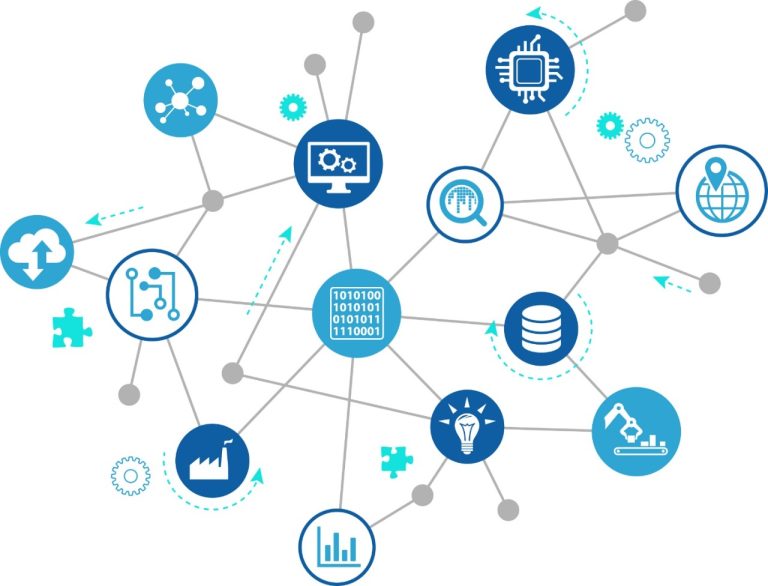A digital enterprise is a type of organization that bases its competitiveness on the use or development of technology. Their processes and operations experience an increase in performance and efficiency thanks to the competitive advantage that their infrastructure, systems, applications, and technological capabilities give them.
What is a digital enterprise?
In 2013, Gartner affirmed that all companies are a digital enterprise, referring to the scope and depth of technology, in its different forms, that reaches all sectors of the economy.
One of the advances that has had the greatest impact on the digitization of the business fabric has been the cloud. The introduction of cloud computing promotes the shift towards a new, more flexible, and agile business model.
Thanks to the scalability of cloud services, all internal processes, from accounting, email, and resources; and external, relationships with customers, suppliers, distributors, and partners; are managed in this new environment that allows resources to be adapted to the real needs of the business at any given time.
How to become a digital enterprise
Digital transformation is the path that leads a business to become a digital enterprise. But before starting this journey, companies that want to reach their digital sweet spot need to answer a few questions, such as the following:
- What value can the digital environment deliver?
- How cloud migration can improve your processes.
- What are the risks and challenges they will have to face?
- Which are the
By the time adaptability is a reality in the enterprise business model, operating with all the flexibility that the cloud allows, it may be too late to fix issues such as the need to have a single version of the truth. Issues such as those related to master data management or data governance must, therefore, precede any migration.
And finally, every future digital enterprise needs to gain insight and understanding about their customer base. Who are they, where are they, what do they need and what are their habits are questions that need answers. Something that may not be an easy task, especially in the case of organizations divided into different functions or geographies; but that cannot be ignored, since digital customers expect a totally coherent and consistent experience.
Compliance: a challenge for the digital enterprise that begins with the GDPR
In addition to the focus on data, the customer-centric vision and technological support, the digital enterprise is defined by another aspect: security. The progressive adjustment of the legal regulations regarding the processing and protection of personal data is a reality that affects the digital enterprise.
The aim of the new regulations, with the GDPR at the forefront, is to overcome the challenges of technological development and globalization, which have led to the unprecedented availability and widespread use of personal data. Personal data means all that makes a natural person identifiable, including ID or passport numbers, location data, online identifiers, tax data, physiological, genetic, mental, economic, cultural, or social identity, among others.
The new legislative framework means that, from now on, companies must consider data minimization, which means that it must be reduced to the absolute minimum:
- The scope of the data collected.
- The purposes of its processing.
- Your storage.
Although it seems difficult to achieve in times of Big Data, it is necessary to set this goal. So, no more collecting and storing data just in case it was needed in the future, which was a very common approach to data storage, since the cost of cloud was so low, and more streamlining of practices as pervasive as collect email contacts for marketing and sales or even design user account registration forms.
Within the prioritization of compliance, the GDPR has marked a milestone. And it is that its breach could also affect the image of the digital enterprise, for example, if the appropriate security measures are not implemented to protect people and their data from cyber-attacks and leaks.
Companies have always relied on technology to innovate and improve productivity, but in recent years we have seen an explosion of technologies such as mobile devices, social networks, and Big Data. All these advances shape the digital enterprise, by translating into opportunities and threats that force it to make decisions and act. Knowing them is the first step to finding effective solutions.

